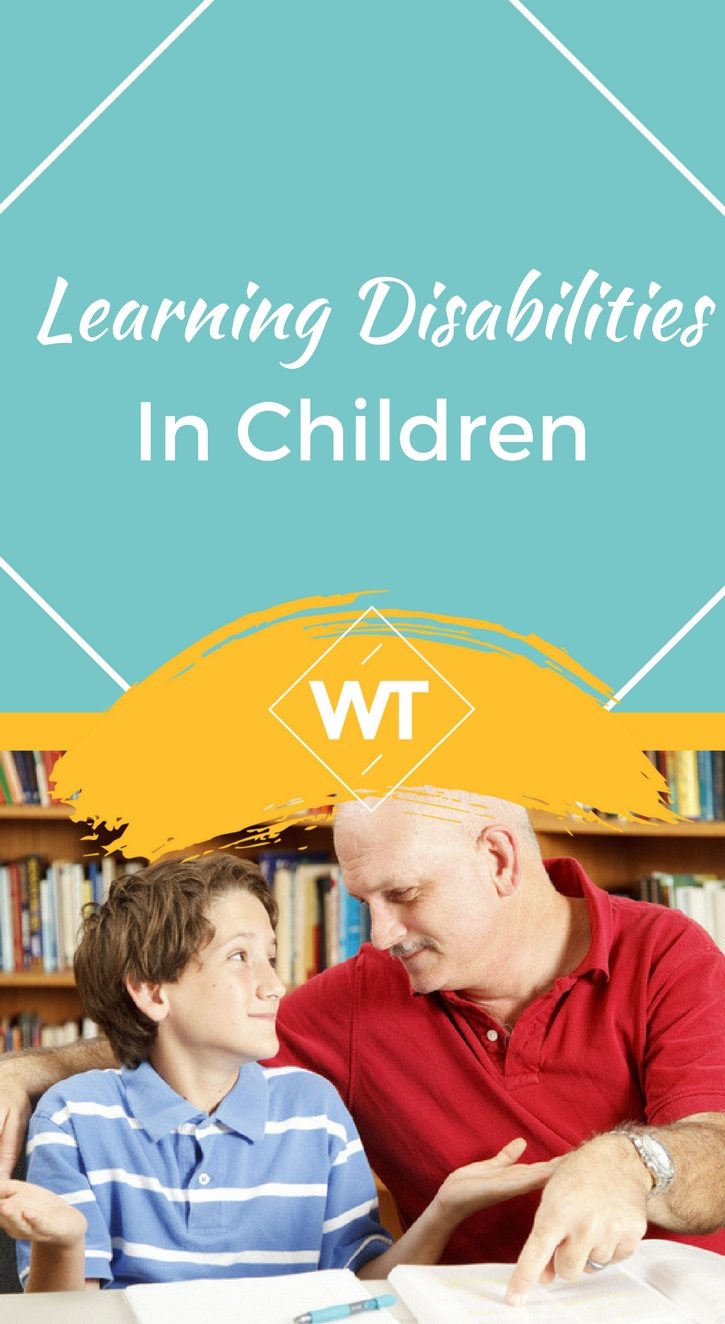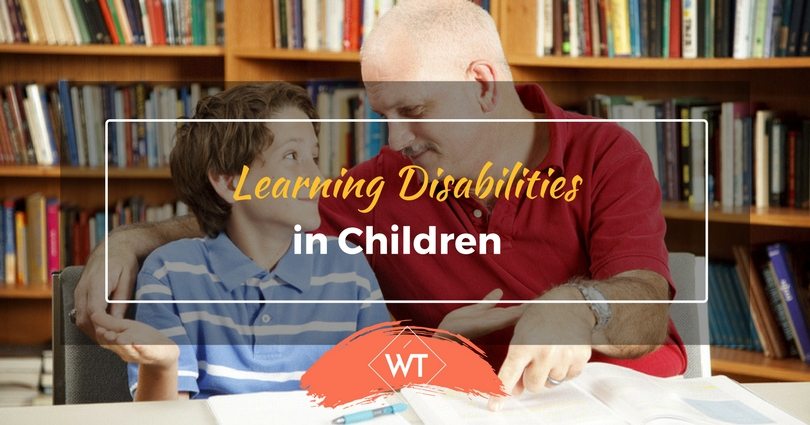Learning Disabilities in Children

Every child shies away from reading and writing at some point in time. They may not be in the mood to study or it is possible that the subject or topic is not of their choice and interest.
But, if this happens regularly and the child is also making regular mistakes during reading and writing, it might be a warning sign of a Learning Disability in the child and he might need extra help and attention.
Learning Disabilities are a neurological condition and simply means that he/she understands and interprets the information differently because of the way their brain functions. In fact, most children dealing with Learning Disabilities are intelligent. Some common learning disabilities involve problems with reading, writing, math and reasoning, speaking and listening.
It is very difficult to identify learning disabilities as they might be confused with disinterest or lack of understanding and practice. But, there are a few signs which can help identify the problem. If these signs are observed constantly, it might be a warning sign that the child needs help.
Case Study
Rebecca is a tall and athletic and is very good in sports. However, she has always struggled with academics, her spelling and always makes lot of mistakes. At times, she spells the same word differently in a single document. Also, she confuses similar sounding and similar appearing words.
Initially, her parents thought that she was just not concentrating and thus, is making these mistakes. But, her school teacher sensed a problem and asked Rebecca’s parents to get professional help.
Rebecca was diagnosed with Dyslexia but, with some help from her school counselor and a special educator (because of benefits and leverages given by the education system to such children), she is doing much better academically.
Main Types of Learning Disabilities and Symptoms:
1. Dyslexia
It is a reading-based difficulty and interferes with recognition and decoding of words.
Symptoms : The signs include difficulty with
- Reading speed and fluency,
- The order of letters is jumbled up in a word, and
- Confusing similar looking letters like b and d,
- Difficulty recalling known words.
2. Dysgraphia
This writing-based difficulty can include problems writing grammatically-correct words and sentences. Also individuals face difficulty with writing their ideas and thoughts down on paper.
Symptoms : The common signs include
- Grammatical mistakes in writing
- Poor handwriting
- Mistakes in copying letters and words
- Improper pencil grip
3. Dyscalculia
This is a math-based difficulty which results in problems recognizing numbers and the clarity of concepts. Individuals can also have problems with reasoning.
Symptoms : The common signs include
- Problems with sequences of numbers
- Confusion in similar looking numbers like 3 and 6
- Difficulty retaining patterns while adding, subtracting, multiplying and dividing
- Difficulty in telling time or handling money
- It is a problem with motor skills, nonverbal communication and social skills
- Hand-eye coordination
- Perceiving facial expressions
- The individual asks too many questions and can be disruptive during conversation
4. Dysphasia/Aphasia
This language-based difficulty highlights problem with expressing oneself using words.
Symptoms: The common signs include difficulty with
- Fluency of speech
- Expressing thoughts verbally
- Understanding words and parts of speech
Other than the above-mentioned problems which impact an individual’s learning, there is also Auditory Processing Disorder and Visual Processing Disorder which can interfere with the processing of information received through hearing or seeing.
Conclusion
A Learning Disability does not mean that an individual is not intelligent or is not willing to study. It is just that they understand things in a different way. People with learning disabilities do well in academics and succeed in life if they get proper help and support at the right time.
Children with learning disabilities can, and do, succeed. If you feel that your child has any of the above symptoms, do not feel demotivated and do not hesitate, take feedback from his/her teachers, get the diagnosis done and provide them with the proper intervention and you will see the result.









Leave a Reply